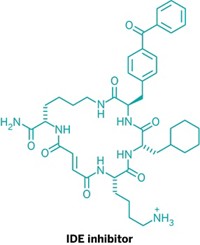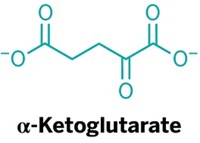Advertisement
Grab your lab coat. Let's get started
Welcome!
Welcome!
Create an account below to get 6 C&EN articles per month, receive newsletters and more - all free.
It seems this is your first time logging in online. Please enter the following information to continue.
As an ACS member you automatically get access to this site. All we need is few more details to create your reading experience.
Not you? Sign in with a different account.
Not you? Sign in with a different account.
ERROR 1
ERROR 1
ERROR 2
ERROR 2
ERROR 2
ERROR 2
ERROR 2
Password and Confirm password must match.
If you have an ACS member number, please enter it here so we can link this account to your membership. (optional)
ERROR 2
ACS values your privacy. By submitting your information, you are gaining access to C&EN and subscribing to our weekly newsletter. We use the information you provide to make your reading experience better, and we will never sell your data to third party members.
Biological Chemistry
Study Strengthens Alzheimer's Link To Cholesterol
Findings on the mechanism of a cholesterol metabolism pathway could aid development of new therapeutics
by Stuart A. Borman
February 8, 2010
| A version of this story appeared in
Volume 88, Issue 6
Findings on the molecular mechanism of a cholesterol metabolism pathway could aid development of a new class of Alzheimer’s disease therapeutics, according to a research report. Cholesterol metabolism is known to play a role in the accumulation of amyloid β, a peptide associated with Alzheimer’s. Dora M. Kovacs of Harvard Medical School and coworkers previously showed that inhibitors of acyl-coenzyme A:cholesterol acyltransferase (ACAT) reduce amyloid β accumulation in cell and animal tests, but the way the inhibitors work has been unclear. Now, Ta-Yuan Chang of Dartmouth Medical School and coworkers find that genetic inactivation of ACAT1, one form of ACAT, in a mouse model of Alzheimer’s boosts levels of a cholesterol metabolite, 24(S)-hydroxycholesterol. Chang and colleagues propose that this biochemical response leads to a reduction in amyloid precursor protein and therefore amyloid β (Proc. Natl. Acad. Sci. USA, DOI: 10.1073/pnas.0913828107). The study confirms the potential of ACAT1 as a therapeutic target for treating certain forms of Alzheimer’s disease, the researchers write. Kovacs says the work supports her group’s previous findings. Samuel E. Gandy of Mt. Sinai School of Medicine, in New York City, an expert in lipid-based Alzheimer’s therapy, adds, “I believe that this work has major clinical implications.”




Join the conversation
Contact the reporter
Submit a Letter to the Editor for publication
Engage with us on Twitter